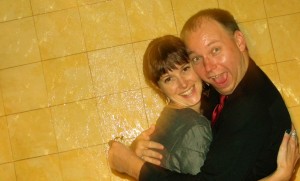Earlier this week, NPR released a fantastic story on NPRed. The story is called, Five Great Teachers On What Makes A Great Teacher. This article is just a great read for entertainment but also, it will bring “uh-huh” moments and makes us think about our education, teachers we have met along the way, and that teachers all have different approaches. Here is a slice of the article. Check out the entire thing on NPR.
What kind of training and experience makes a great teacher?
Bain: I know I’m going to get pushback on this, but I think one of the major problems we face in cultivating great teachers is that we don’t pay enough attention, especially in K-12, to the learning of the teacher. We should help them develop the dynamic powers of their minds and should continue to do so throughout their lives.
Second, we should help them develop an understanding of some of the major ideas coming out of the research and theoretical literature on what it means to learn, how the human mind works, and all of the personal and social forces that can influence learning. This is a dynamic field with lots of important research and ideas emerging almost constantly, and the training and experience of a great teacher has to include the opportunity to explore, understand, and apply the ideas and information that is emerging.
Finally, great teaching includes the ability to give good feedback and to make assessments.
Jose Vilson: It really depends on the environment around the teacher … with more experienced staff, it’s important to get beyond the humdrum PDs [professional development opportunities] and get into something truly transformative, which is hard to find. That’s why so many of us have to seek out PD opportunities both on and offline on our own time, past the meetings and opportunities provided by our school.
Moore: There is so much in teaching that would be best learned through apprenticeship, rather than the current system of leaving most new teachers to trial-and-error their way through. The teachers who become great or master teachers seek out the help and PD they need as Jose mentions, but I agree with the work of Deborah Ball and others that we know enough about teaching that we can, and should, be much more systematic in sharing that collective wisdom with our newest members.
Also, Ken is correct about the importance of being able to assess student learning and give timely, appropriate feedback. The current overemphasis on test preparation and other misuses of standardized testing have taken much of this critical professional skill out of the classroom and away from teachers.


